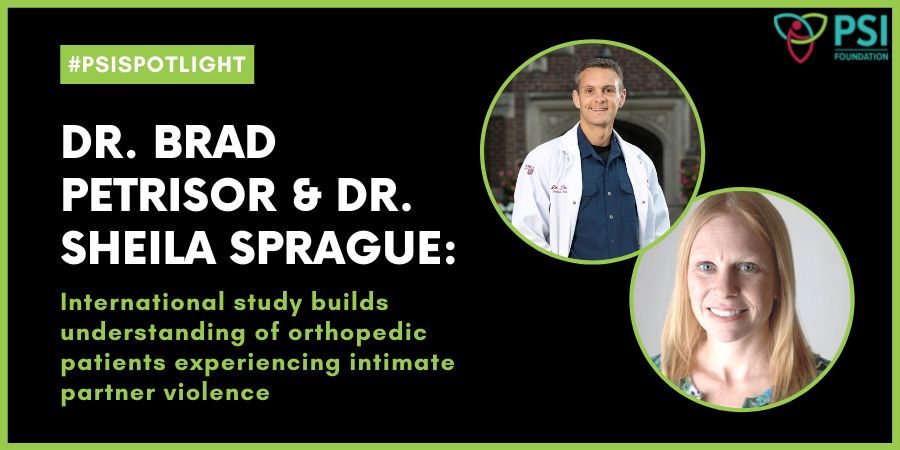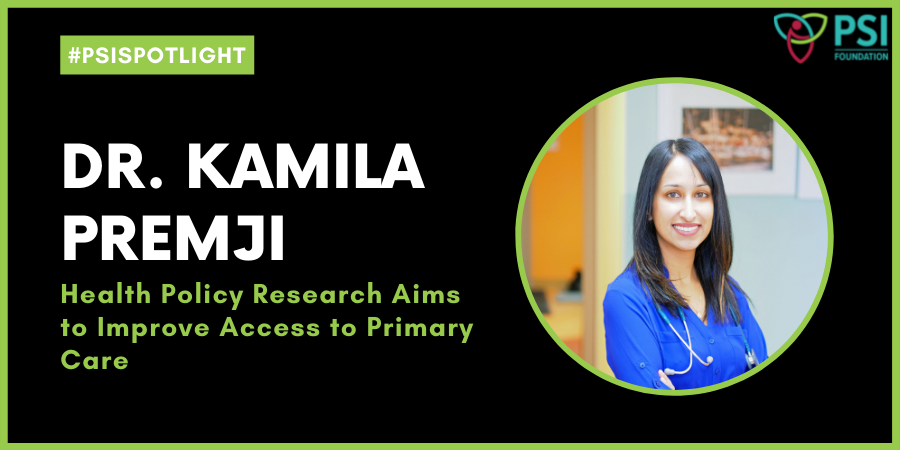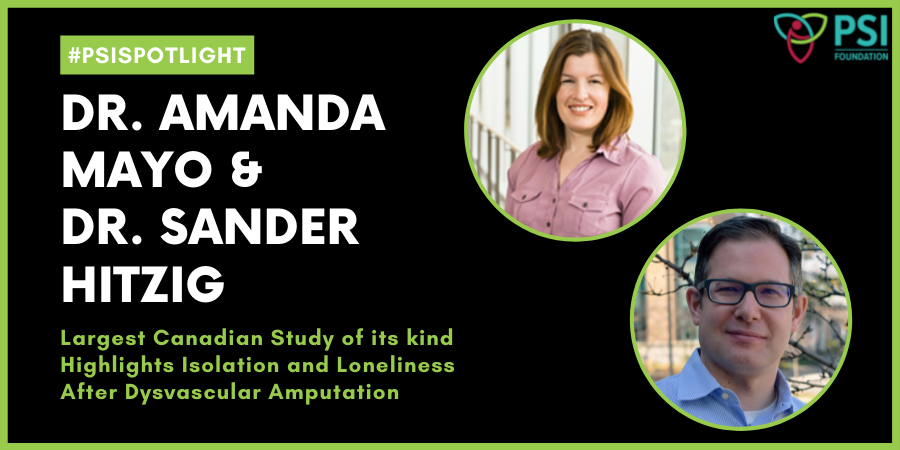Screening women for intimate partner violence (IPV), which includes physical, sexual, and emotional violence, may not seem to fall under the scope of an orthopedic or fracture clinic. But orthopedic surgeons and researchers who recently led an international study on IPV prevalence among orthopedic patients explain that the fracture clinic can actually be a good setting to address this issue.
“In the fracture clinic, you often see patients with injuries frequently during the first few weeks to months. Follow-up often continues for months and sometimes longer,” says Dr. Brad Petrisor, an orthopedic surgeon and professor at McMaster’s Department of Surgery. “You get multiple snapshots over the course of the year after their injury, so this is a major opportunity to ask about and understand intimate partner violence in people’s lives.”
Dr. Petrisor, Dr. Sheila Sprague, Associate Professor in the Department of Surgery, Dr. Kim Madden, Assistant Professor in the Department of Surgery, Dr. Mohit Bhandari, Chair of the Department of Surgery, along with a large multi-disciplinary team, are leading a research program that is generating more awareness of IPV among orthopedic specialists and equipping them to address it with their patients.
As part of her PhD thesis, Dr. Sprague led one of the early studies of IPV among orthopedic patients, the PRAISE (Prevalence of abuse and intimate partner violence surgical evaluation) study. The research team examined the prevalence of IPV among 3,000 women attending orthopedic fracture clinics in Canada, the US, the Netherlands, Denmark and India. They found that one in six women had experienced IPV in the year before the injury, and one in three had experienced IPV in their lifetime. The study was published in The Lancet in 2013.
In 2015, Dr. Petrisor and Dr. Sprague received funding from PSI Foundation to expand on those results with the PRAISE-2 study, which examined reporting rates of IPV among orthopedic patients during the first year following the injury and how IPV affects outcomes such as return to function, complications from the injury and health-related quality of life.
The team assessed IPV disclosures and clinical outcomes of 250 women from Canada, the Netherlands, Spain and Finland at the first visit to the orthopedic fracture clinic and at one, three, six and 12 months after the first visit.
They found that 33% of the patients disclosed IPV during their first visit, and an additional 12.4% who did not disclose IPV at the first visit did disclose IPV at some point during the 12-month follow up.
The team also found that women who disclosed IPV were slower to return to their pre-injury level of function, experienced more complications from their injury and had lower health-related quality of life during the follow-up period. The results were published in the Journal of Bone and Joint Surgery, the field’s most prestigious journal.
“These kinds of statistics can help inform education so that surgeons know to ask about IPV, not just once but at each visit, because you could be missing a significant number of people who could be helped,” says Dr. Sprague. “And knowing that patients who experience IPV have a more difficult recovery is helpful so that the surgeon can intervene earlier with referrals to appropriate services.”
The research team’s work over the last decade has helped to change the perspective of orthopedic specialists from viewing IPV as outside their scope of practice to feeling better equipped to help patients experiencing IPV. They have published papers in top journals and delivered presentations at major orthopedic trauma meetings, and their work has led to positional statements by the Canadian Orthopedic Association recognizing IPV as a significant determinant of morbidity and mortality.
Importantly, Dr. Sprague, Dr. Bhandari, and their colleagues have used the results from the research program to develop a program called EDUCATE, an open access website for orthopedic surgeons and fracture clinic staff that provides knowledge and skills to assist women who are victims of IPV. By the end of 2021, the EDUCATE program had trained more than 150 health care professionals, and they hope to eventually broaden the program to include more health care fields.
“It teaches them how to optimize their fracture clinic and how to ask about IPV. And it also describes the resources that are available and referrals that health care providers can give,” says Dr. Sprague.
As a practising surgeon, Dr. Petrisor says that the research program has changed his own approach with patients.
“When we started this program of research, there was a lot of discomfort among orthopedic surgeons: how do you ask people about IPV, how can the environment in the fracture clinic be conducive to asking about it, and if a patient discloses, what do I do about it?” says Dr. Petrisor. “Knowing that more than one third of women in the clinic disclose IPV has definitely changed my approach in how I interact with patients. In the same way we ask about smoking, alcohol or drugs without judgment, we can ask about IPV and know what to do after a disclosure.”



